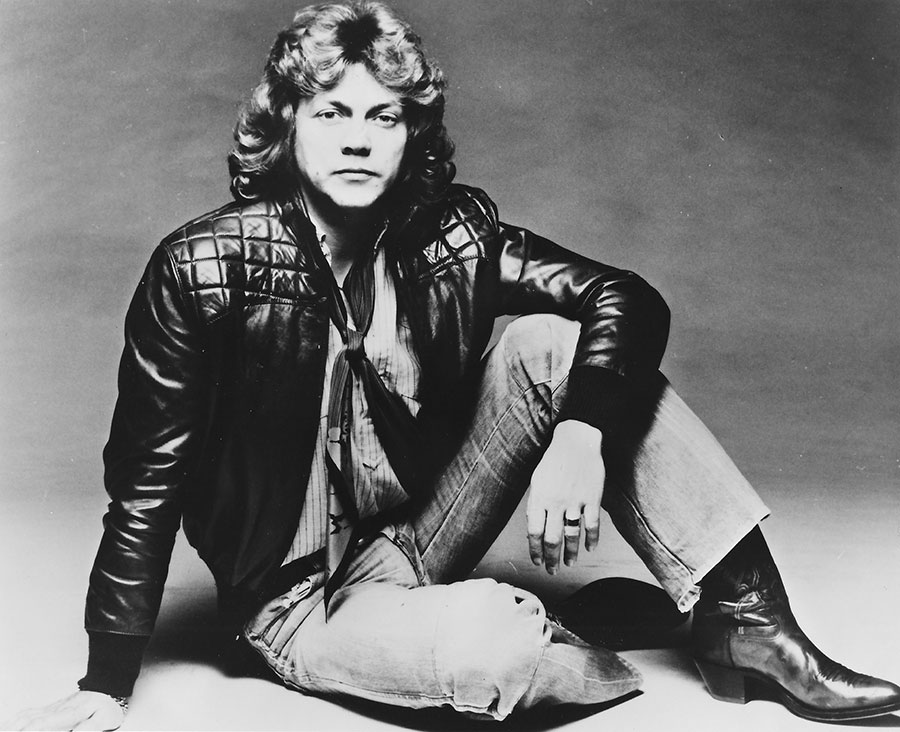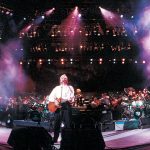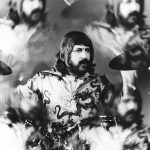John Lodge, the bassist and singer with the Moody Blues, died on October 10, 2025, at the age of 82.
The Moody Blues took a soulful approach as part of the British invasion of 1965—wearing matching, pinstriped navy stage suits, the band scored a major hit with “Go Now,” a cover of a Bessie Banks R&B song sung by Denny Laine. It sold more than 1 million copies worldwide, reaching No. 1 in England and the Top 10 in America. The group toured with the Beatles and seemed poised for pop stardom, but subsequent singles made no impact. Laine and another player left and were replaced by Lodge and singer/guitarist Justin Hayward (Laine later joined Paul McCartney’s Wings).
Everything changed when Lodge and Hayward helped steer the band. On 1967’s Days of Future Passed, considered one of rock’s original concept albums, the Moody Blues were the first band to record in stereo and to use the mellotron, a forerunner of the synthesizer. The lush, symphonic sound ushered in a groundbreaking era for progressive rock.
“‘Go Now’ was one of the seeds, but we see Days of Future Passed as the beginning of our recording career,” Lodge said in 1997. “The songs we did onstage were never recorded with an orchestra. When you first start writing and recording, you’re prepared to take more risks because you’re gigging—you have a hands-on experience with your audience. After that, you get into a cycle where you have to finish the album and go on tour, and the record company seems to take over. The tour is to promote the album. That’s never how we envisioned it. The two things really go hand in hand. Starting off with Days of Future Passed, we had to be truthful with our songs so that they would stand the test of time, and hopefully that’s what has happened.”
Lodge wrote some of the band’s signature songs, including “Ride My See-Saw,” “Isn’t Life Strange” and “I’m Just a Singer (in a Rock and Roll Band).” The musician released his 1977 solo project, Natural Avenue, recorded after the band embarked on a five-year “break-up.” It sounded a lot like earlier Moody Blues albums, and there was nothing wrong with that. “It was a very satisfying album because it reflected on who I was at that particular time—someone who got cocooned into a massive lifestyle with the Moody Blues and finally managed to break all those pieces away and emerge again as an independent person.”
The Moody Blues had never performed live with an orchestra until a 1992 concert with the Colorado Symphony Orchestra at Red Rocks Amphitheatre to celebrate the 25th anniversary Days of Future Passed. It became a popular PBS special, video and CD. For years, the band trotted out top-grossing tours, backed by members of local philharmonics, with orchestra players lending the lush sounds of violins, timpani and classical harp to such classics as “Tuesday Afternoon” and “Nights in White Satin.”
“That very first concert at Red Rocks was the very best experience of them all,” Lodge said. “It meant so much to so many people who had been wishing and hoping for that. There was so much satisfaction in everybody’s face before we even walked onstage. It wasn’t just our dream; it was their dream that had come true as well. When I look back at the video of that concert and feel the energy and the anticipation, it’s just mind-blowing for me.”




